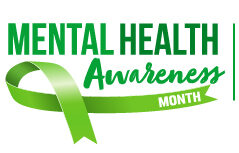The gun wasn’t loaded when Paul Gionfriddo’s son Tim carried it into his middle school on a late November day in 1996.
Lugging the weapon in his backpack, Tim never intended to use it and never intended any harm. In fact, the gun — a BB gun — was broken. He simply wanted to return it to the son of the man who had sold it to him; and as a result of his actions, he faced suspension.
This was years, Gionfriddo said, before Columbine, before Virginia Tech, before Sandy Hook.
But, more importantly, it was years after Gionfriddo noticed signs of mental illness in his son and years after he had started working with the school system to get Tim into special education services.
Shortly after the gun incident, Tim would be diagnosed with post-traumatic stress disorder — but he had already received diagnoses of attention deficient disorder and clinical depression. Ultimately, Gionfriddo would discover his son was schizophrenic, as well.
“It wasn’t until Tim started acting up in school that they began to say, oh, maybe he really does need to have additional services,” Gionfriddo said. “[The gun] was a behavioral issue, and so they decided they would do something about it. You know what they did? They suspended him. Because that’s what they do with so many kids like ours. They wait and they wait and they wait, and they do nothing, nothing, nothing.”
But Tim was one of the lucky ones, said Gionfriddo, now the CEO of Mental Health America.
Unlike most children with mental health issues, Gionfriddo told an audience of approximately 250 health care professionals, nonprofit advocates and government officials at annual Florida Mental Health Summit, Tim received a diagnosis. Twenty-seven out of 28 students go through school and reach adulthood without ever identifying the serious mental illness that will impact their life significantly, he said.
Gionfriddo attributes that to years of poor policy decisions from his generations that continue today. It is a system that does not provide the necessary services and support for children who needs them, a system that takes adults with those needs still untreated and moves them into a revolving door of occasional hospitalization, frequent incarceration and chronic homelessness, he said.
“We didn’t create a system of deinstitutionalized services where people moved to communities in the 1980s, like we thought we did,” Gionfriddo said. “All we succeeded in doing was closing many of our state mental health hospitals an re-opening them, calling them a different name: county jails and state prisons.”
He called for those in the room to reach out to their state legislators to demand improved services for those with mental health concerns. These cogs have already started moving here in Florida. Senate Bill 12, which passed in 2016, addresses shortcomings in the delivery of mental health and substance abuse services in Florida.
During the summit, Sen. Rene Garcia, Rep. Gayle Harrell, Rep. Kathleen Peters and Department of Children and Families Assistant Secretary John Byrant discussed the new legislation. The bill requires a coordinated system of care at the local level and institutes a “no wrong door” policy for assessing care. In other words, the first exposure to aid for those with mental illness should, in theory, not be the criminal justice system.
“People realized we have a physical health care system and a mental health care system, but they realized we need an integrated health care system,” Harrell said. “Senate Bill 12 is a baby step, but it’s a difficult first step.”
All four panelists told the audience to figure out who their local state representatives are and demand accountability, demand action. The Florida Mental Health Summit lasted through the workday Tuesday, with numerous break-out sessions on topics such as juvenile justice, the opioid epidemic and the perceived correlation between violence and psychosis.
The Summit continues Wednesday with a discussion on crafting the 2017 legislative agenda for mental health.
Amanda Williamson: (904) 359-4665



